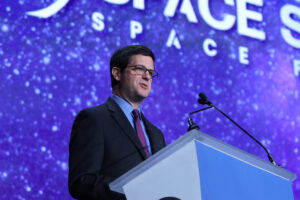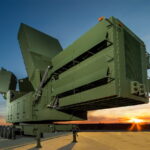
The Pentagon is nearing the final touches on a new strategy focused on international space cooperation, with the department’s lead policy official citing increased work with allies and partners on space efforts as a “game changer” to “raise the deterrence threshold.” John Plumb, assistant secretary of defense for space policy, told reporters on Friday the new strategy is “at least a month” away from being completed, and would hopefully be released “in the next few months.” “Most of our space…

 By
By 











